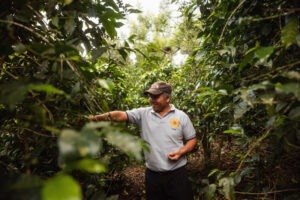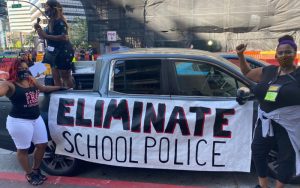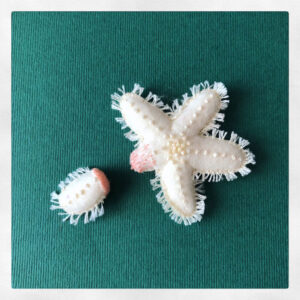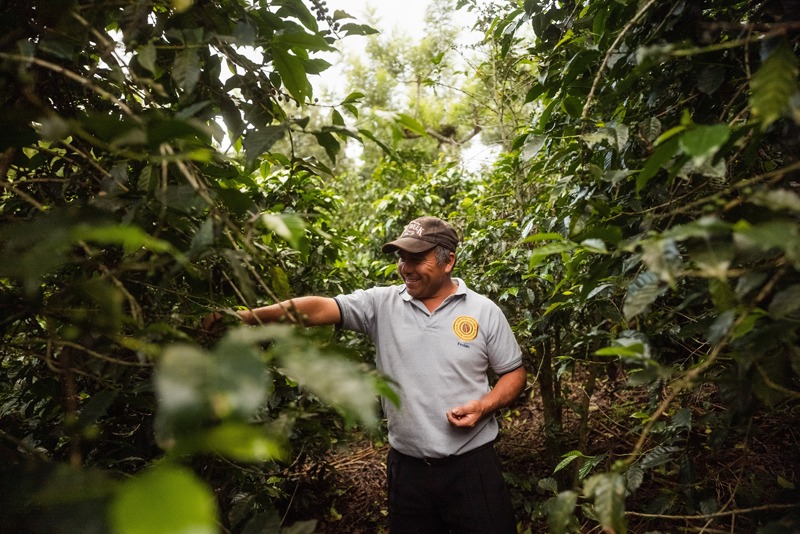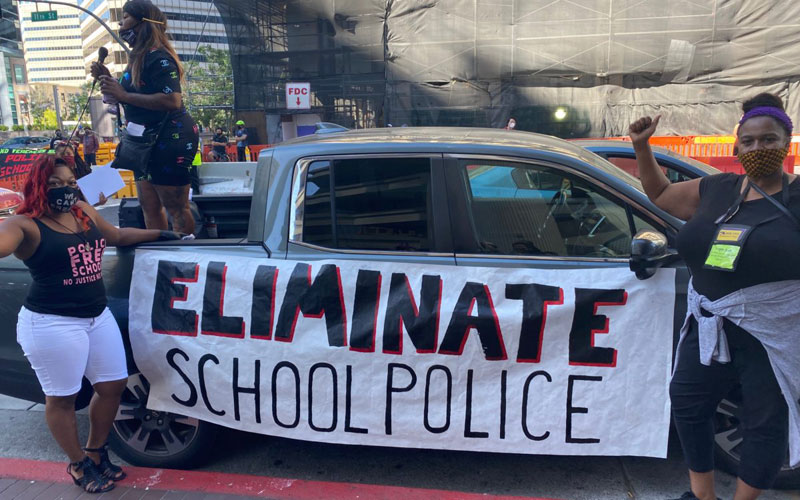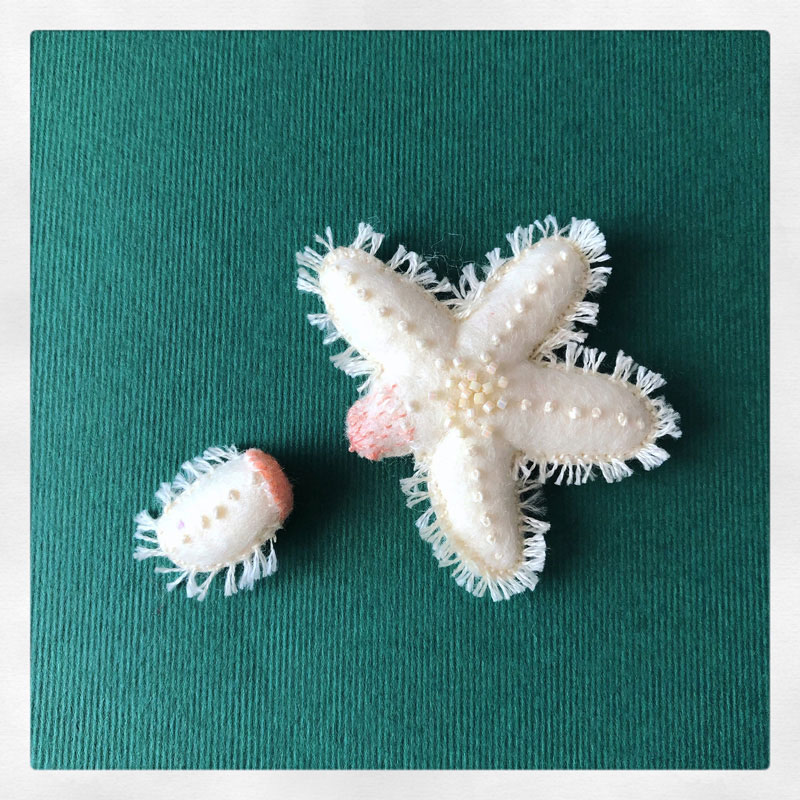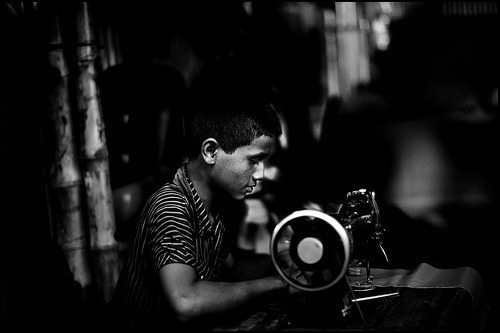
March 31, 2015; TakePart
Would you buy a new jacket if the label read, “100% cotton. Made in Sierra Leone by Tejan. The first few times he coughed up blood, he hid it from his family”? A new campaign from a Canadian nonprofit is challenging consumers to face the disturbing stories behind the products we purchase.
The Canadian Fair Trade Network has partnered with the creative agency Rethink Communications on “The Label Doesn’t Tell the Whole Story.” The collaboration is working to produce print advertisements that spotlight the dangers factory workers endure.
Sign up for our free newsletters
Subscribe to NPQ's newsletters to have our top stories delivered directly to your inbox.
By signing up, you agree to our privacy policy and terms of use, and to receive messages from NPQ and our partners.
One way these two organizations are experimenting with evoking powerful messages is by exposing the shocking realities of sweatshops through clothing labels. Each message tells the desolate story of a sweatshop worker suffering through terrible conditions and ends with, “The Label Doesn’t Tell The Whole Story.” The aim is to inspire consumers to shop more consciously and raise awareness for fair trade practices.
The yellow sweater below has a hard-to-miss tag which reads,
100% cotton. Made in Cambodia by Behnly, nine years old. He gets up at 5:00 am every morning to make his way to the garment factory where he works. It will be dark when he arrives and dark when he leaves. He dresses lightly because the temperature in the room he works reaches 30 degrees. The dust in the room fills his nose and mouth. He will make less than a dollar, for a day spent slowly suffocating. A mask would cost the company ten cents. The label doesn’t tell the whole story.
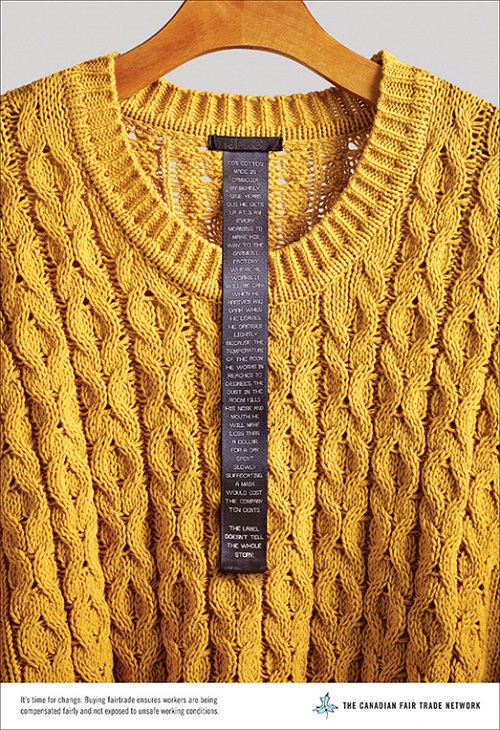
Only one percent of garments worldwide are ethically sourced, and the Canadian Fair Trade Network is encouraging consumers to be aware of the unsafe conditions many factory workers endure for little compensation. CFTN also provides a shopping guide to products and companies that helps shoppers know where their clothes is coming from and support fair trade.—Aine Creedon


